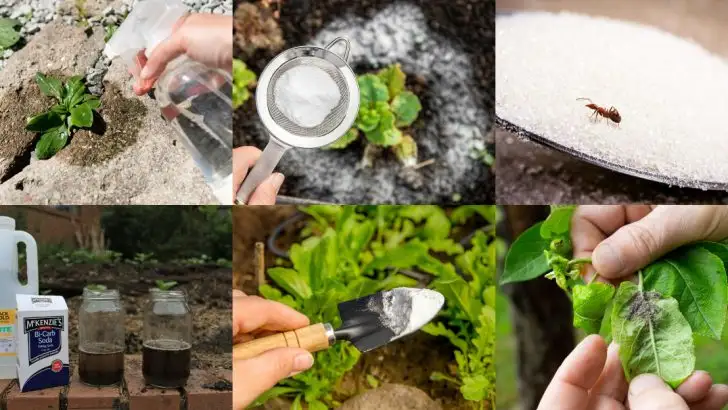Your kitchen holds more gardening magic than you think. No fancy sprays, no mystery chemicals—just three simple ingredients that can tackle some of the most annoying garden problems.
Vinegar, baking soda, and salt aren’t just for cooking. They fight weeds, battle pests, and even help plants thrive when used the right way.
Forget overpriced solutions from the garden center—these everyday household staples are about to become your new best friends. Want to stop slugs in their slimy tracks?
Keep fungus from wrecking your roses? Say goodbye to stubborn weeds?
These 17 tricks will show you exactly how to use vinegar, baking soda, and salt to fix common garden headaches fast. Grab a spray bottle, roll up your sleeves, and let’s get to work!
Eliminating Weeds with Vinegar
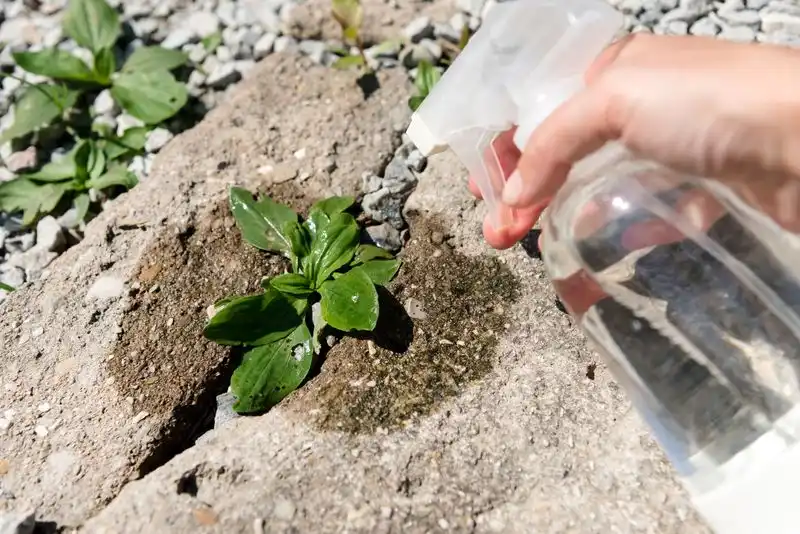
Weeds popping up between your garden paths can be a nuisance. Try using vinegar as a natural herbicide.
In a spray bottle, mix vinegar with a few drops of dish soap. The soap helps the vinegar adhere to the leaves, increasing its effectiveness.
Spray directly onto the weeds during a sunny day. The acetic acid in the vinegar will dry out the leaves, killing the weeds without harming the soil.
Reapply as needed, especially after rain. It’s a simple solution that keeps your garden paths weed-free without resorting to harsh chemicals.
Fungal Disease Protection with Baking Soda
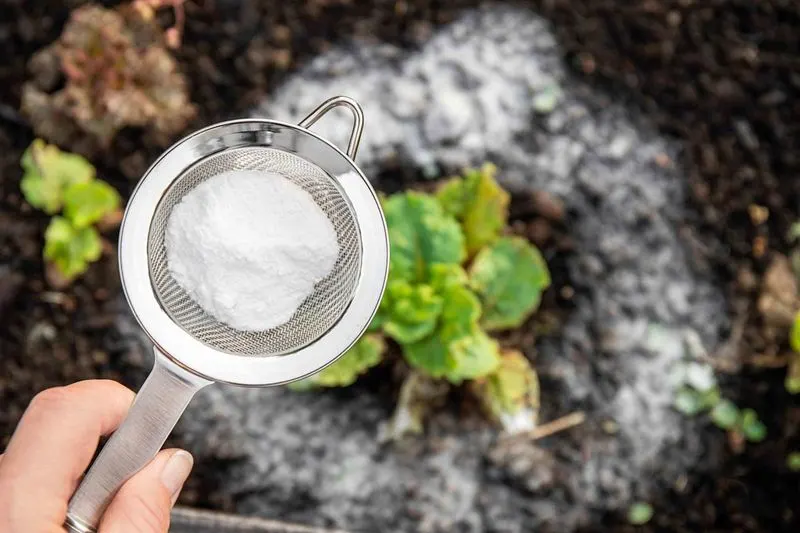
Fungal diseases like powdery mildew can wreak havoc on your plants. A preventative spray of baking soda can help.
Mix one tablespoon of baking soda with a gallon of water and a few drops of liquid soap. Spray this solution onto affected plants weekly.
Baking soda alters the pH on the leaf surface, making it less hospitable for fungi to grow. Ensure coverage of both the tops and undersides of leaves.
This method is a safe, non-toxic way to protect your plants from disease without introducing harmful substances to your garden environment.
Deterring Ants with Salt
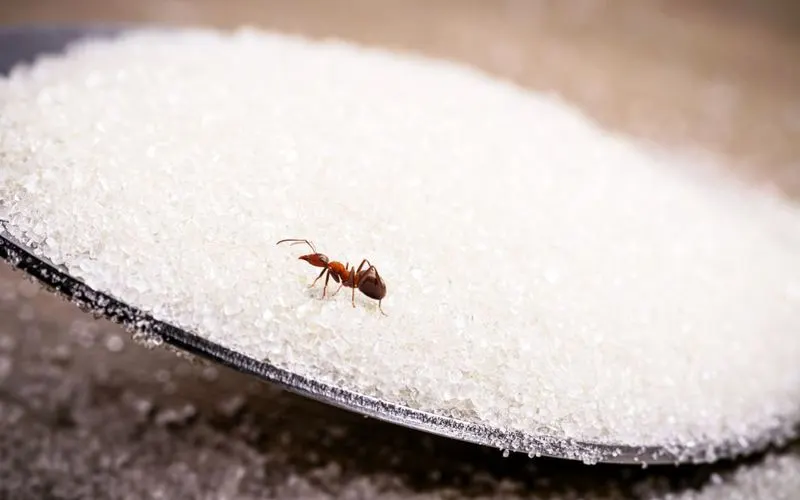
Ants can disrupt your garden’s ecosystem. Salt is an effective deterrent.
Sprinkle salt along ant trails and around the base of plants. The salt dehydrates ants, discouraging them from returning.
It’s a straightforward method, but be cautious. Overuse can affect soil salinity, potentially harming plants.
It’s best used in controlled amounts and away from the plant roots. Regular monitoring and application will ensure ants are kept at bay without damaging your garden.
This is a practical solution for maintaining a balanced garden environment.
Improving Soil pH with Vinegar
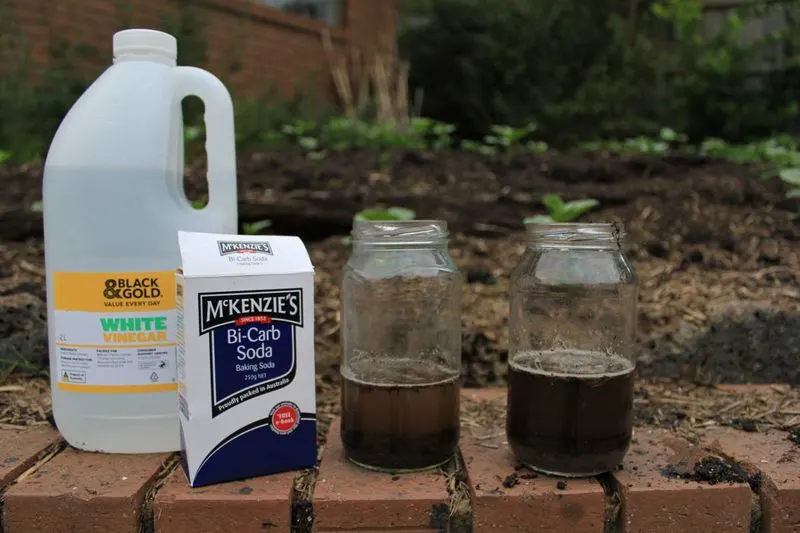
Adjusting soil pH is crucial for plant health. Vinegar can help lower soil pH, making it more acidic.
This is beneficial for plants like blueberries or azaleas that prefer acidic conditions. First, test your soil pH.
If adjustment is needed, mix one cup of vinegar with a gallon of water and pour around the plants. Avoid direct contact with leaves.
This method gradually alters pH, providing an environment where acid-loving plants thrive. Regular testing ensures the pH remains optimal, promoting healthy plant growth and vibrant blooms.
Cleaning Garden Tools with Baking Soda
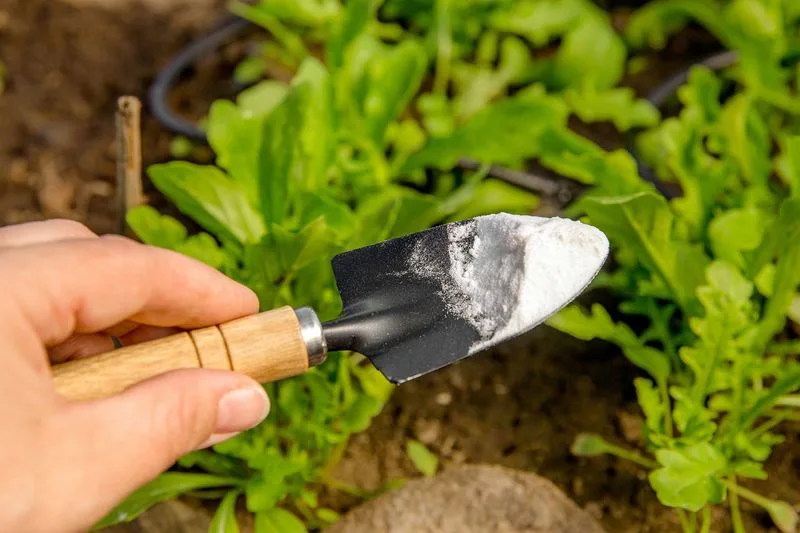
Garden tools often accumulate rust and grime. Baking soda offers an eco-friendly cleaning option.
Make a paste using baking soda and water. Apply to the tools and scrub with a brush.
The mild abrasiveness of baking soda lifts rust without scratching metal surfaces. It’s especially useful for maintaining pruners, spades, and shears.
Rinse thoroughly and dry tools before storing to prevent future rust. This practice keeps your tools in top condition, ensuring they’re always ready for the next gardening task.
Regular maintenance extends the life of your gardening equipment.
Slug Control with Salt
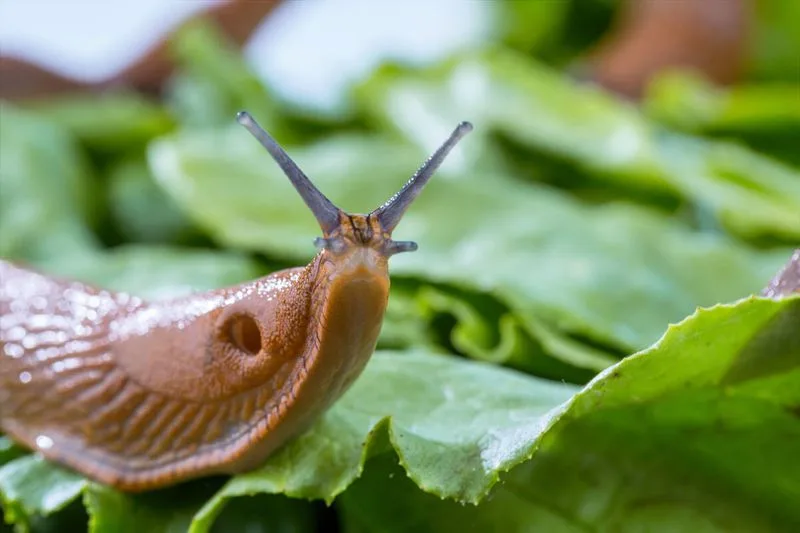
Slugs can quickly damage plants, especially in wet conditions. Salt can be used to control slugs effectively.
Sprinkle a small amount directly on slugs. The salt dehydrates them, providing immediate results.
However, use it sparingly and away from plants, as excess salt can alter soil health. Consider this as a spot treatment rather than a widespread solution.
It’s a fast way to protect your plants from slug damage during critical growth phases. Balance is key to using salt effectively in your garden without causing unintended harm.
Enhancing Seed Germination with Baking Soda
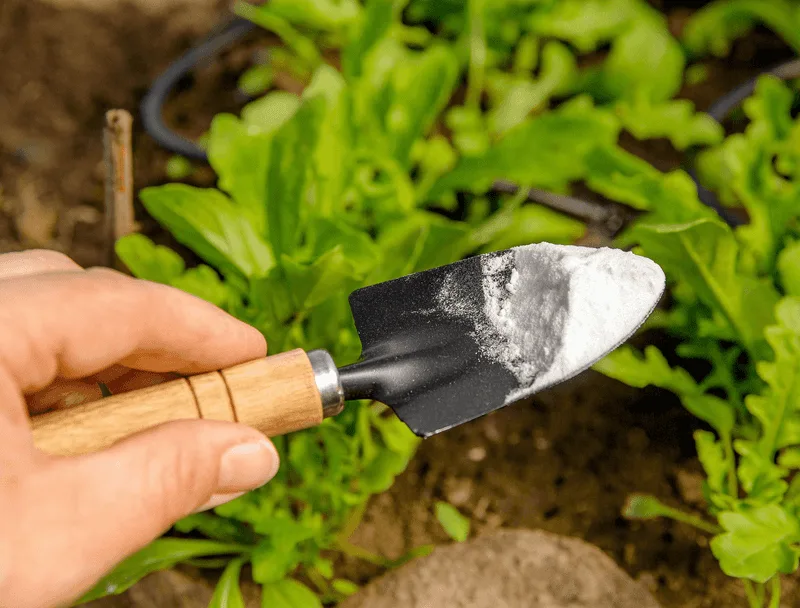
Boost seed germination rates using a baking soda solution. Dissolve one teaspoon of baking soda in a liter of water.
Soak seeds for a few hours before planting. This process softens seed coats, allowing for quicker germination.
It’s particularly beneficial for hard-coated seeds like beans or peas. Ensure seeds are rinsed after soaking to remove any residue.
This method offers a natural alternative to commercial germination enhancers, supporting robust plant growth from the start. Proper preparation leads to a more productive garden, nurturing healthy plants from seedling to maturity.
Repelling Aphids with Vinegar
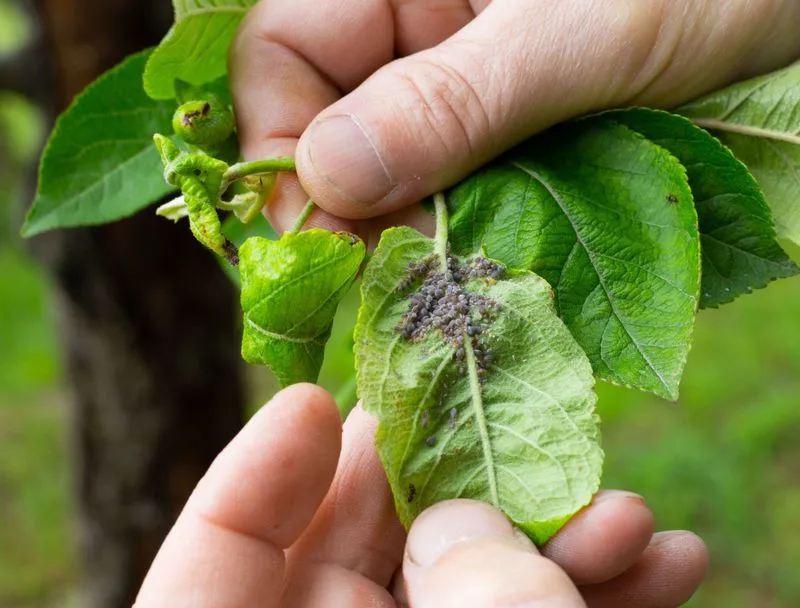
Aphids, tiny sap-sucking insects, can damage plants if unchecked. Vinegar offers a natural repellent.
Mix one part vinegar with three parts water. Spray affected plants, ensuring coverage of all surfaces.
This solution disrupts the aphids’ environment, discouraging infestation. Avoid spraying during the hottest part of the day to prevent leaf burn.
Regular application can keep aphid populations low, safeguarding your plants. It’s a practical, non-toxic method to maintain plant health.
This approach supports a biodiverse garden by reducing reliance on chemical pesticides, encouraging natural pest control.
Removing Algae from Birdbaths with Baking Soda
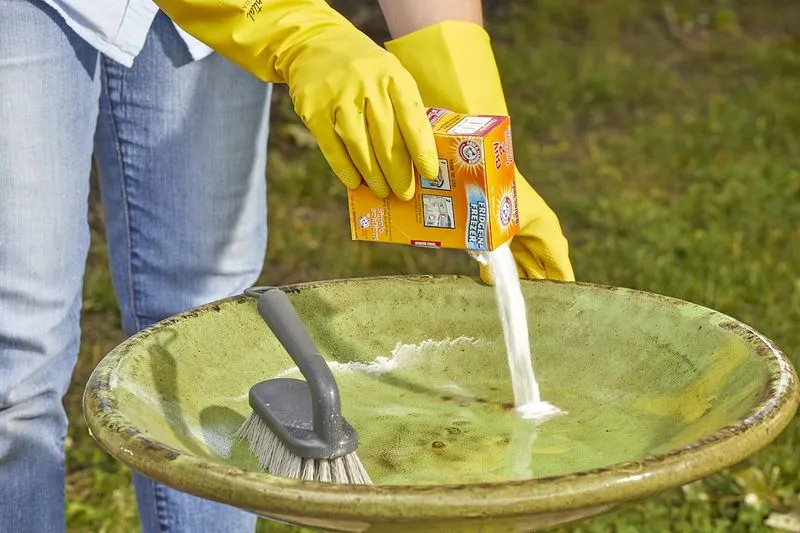
Algae buildup in birdbaths can deter birds and affect water quality. Baking soda is a safe cleaning agent.
Make a paste with water and baking soda. Use a scrub brush to apply and remove algae.
The mild abrasiveness effectively cleans without harming birds. Rinse thoroughly before refilling with fresh water.
Regular cleaning prevents algae recurrence, ensuring a welcoming space for visiting birds. This method offers a non-toxic alternative, promoting a healthy garden ecosystem.
Consistent maintenance of birdbaths supports biodiversity, attracting various bird species to your garden sanctuary.
Preventing Mold on Soil with Cinnamon and Baking Soda
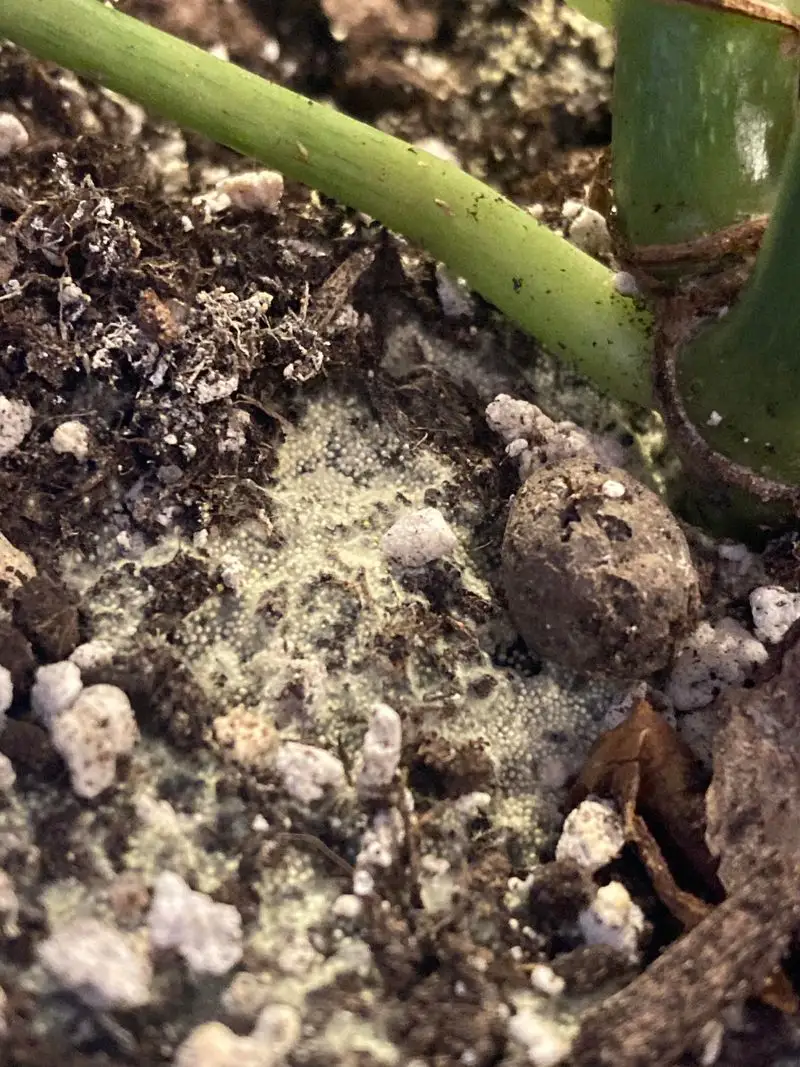
Mold on potting soil can be a common issue. A combination of cinnamon and baking soda can inhibit mold growth.
Sprinkle cinnamon and baking soda evenly over the soil, then gently mix in. Cinnamon acts as a natural fungicide while baking soda adjusts the pH.
This dual approach prevents mold without harming plants. Ensure proper drainage and avoid overwatering for best results.
This strategy maintains soil health and plant vitality. Regular monitoring and care create an optimal growing environment, fostering strong plants free from fungal issues.
Clearing Moss from Walkways with Vinegar
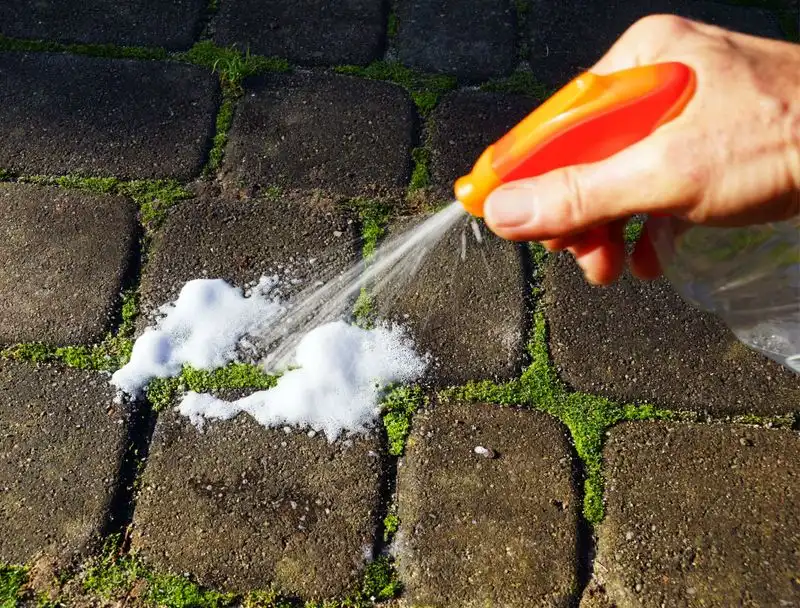
Moss can make garden walkways slippery. Vinegar offers an effective removal method.
Spray undiluted vinegar directly on moss. The acetic acid breaks down moss cells, killing it.
Reapply for stubborn areas and allow sunlight exposure for faster results. This method keeps pathways safe and visually appealing without harsh chemicals.
Clear walkways enhance garden aesthetics and accessibility, providing a welcoming entrance to your outdoor space. Routine maintenance with vinegar is an eco-friendly choice, preserving both the beauty and functionality of garden paths.
Enhancing Flower Colors with Salt
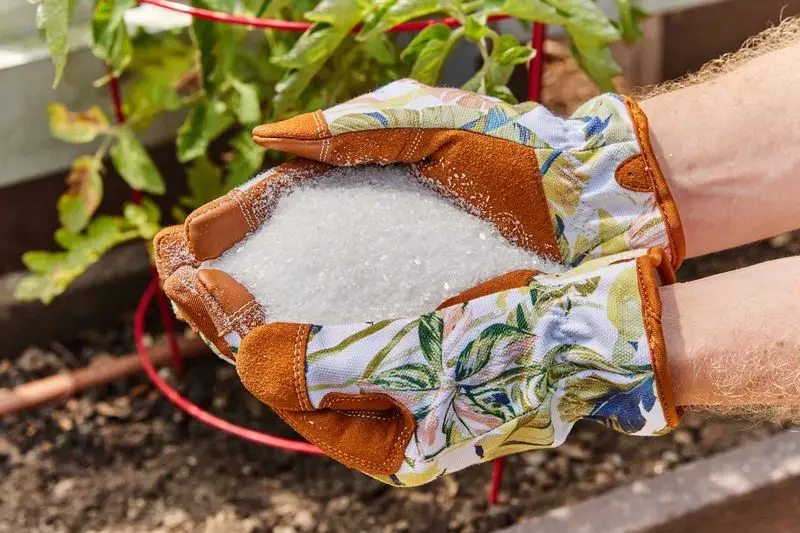
Enhance the vibrancy of flower colors using salt. Dissolve a teaspoon in a gallon of water and apply it around the base of flowers like hydrangeas.
Adjusting soil salinity can intensify blue or pink hues. However, use cautiously to avoid altering soil conditions negatively.
Regular monitoring ensures optimal results without plant stress. This technique adds a pop of color to your garden, making it stand out.
Understanding your soil and plant needs is crucial for successful application, ensuring your garden remains vibrant and healthy throughout the blooming season.
Pest Control with Baking Soda
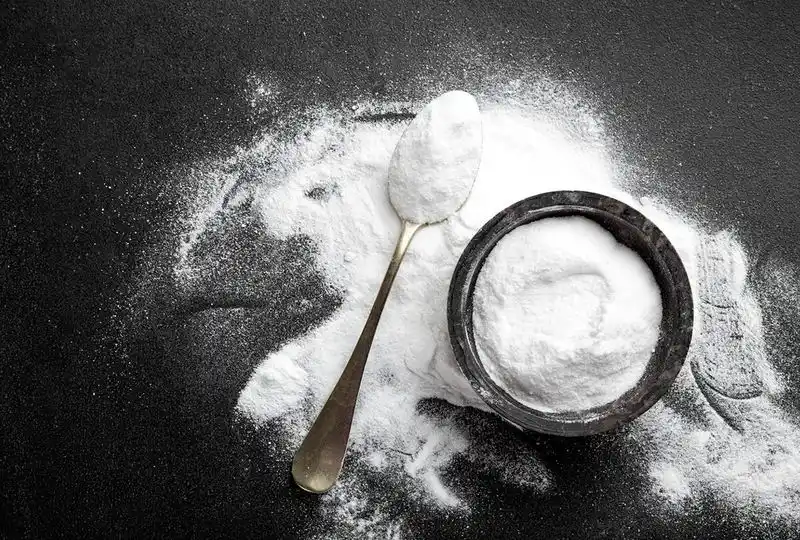
Baking soda can help repel common garden pests. Mix it with water and a few drops of liquid soap.
Spray onto plants, focusing on areas most affected by pests. This solution disrupts the environment pests thrive in, providing a protective barrier.
Regular applications help maintain plant health by keeping pest populations low. It’s a gentle yet effective method, promoting sustainable gardening practices.
Using baking soda for pest control reduces reliance on chemical pesticides, aligning with eco-friendly gardening approaches. This balance supports a thriving garden ecosystem.
Restoring Paving Stones with Vinegar
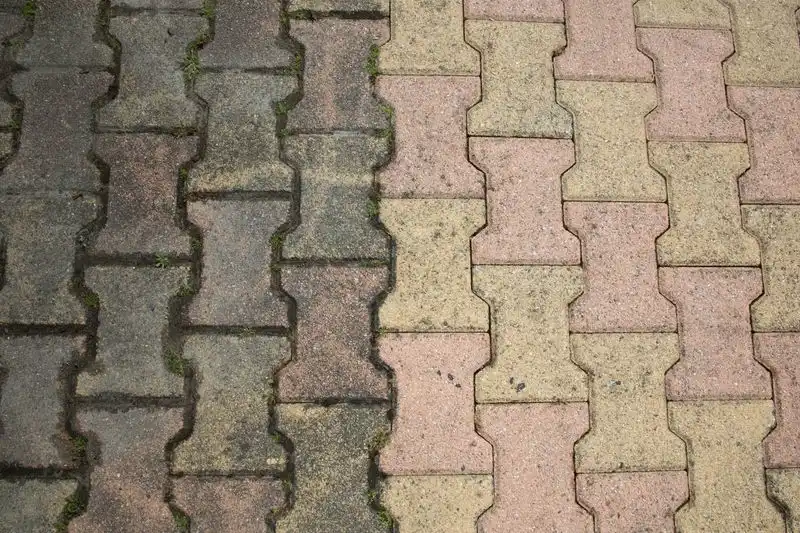
Paving stones can accumulate stains and moss over time. Vinegar offers a natural cleaning solution.
Apply vinegar directly to stains and moss on the stones. The acidity helps break down buildup, restoring their original appearance.
Scrub stubborn areas with a brush for effective results. This method is cost-effective and reduces chemical use in outdoor spaces.
Restored paving stones enhance the overall garden aesthetics, creating a clean and inviting environment. Regular cleaning with vinegar maintains their condition, ensuring your garden paths remain beautiful and functional.
Balancing Compost pH with Baking Soda
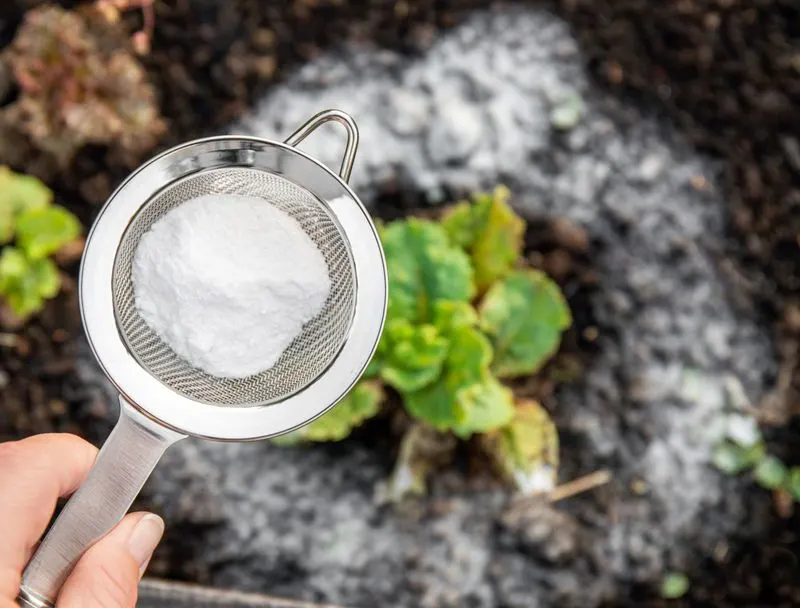
Compost piles can sometimes become too acidic, affecting decomposition. Baking soda can help balance pH levels.
Sprinkle a small amount over your compost and mix well. This adjustment promotes efficient breakdown of organic matter.
Monitor pH regularly to keep it within optimal ranges for microbial activity. Balanced compost supports healthy soil structure and fertility.
This practice ensures your compost pile continues to produce nutrient-rich soil amendments, fostering a sustainable garden environment. Simple adjustments like this can significantly impact garden productivity and health.
Preventing Mildew on Garden Furniture with Vinegar
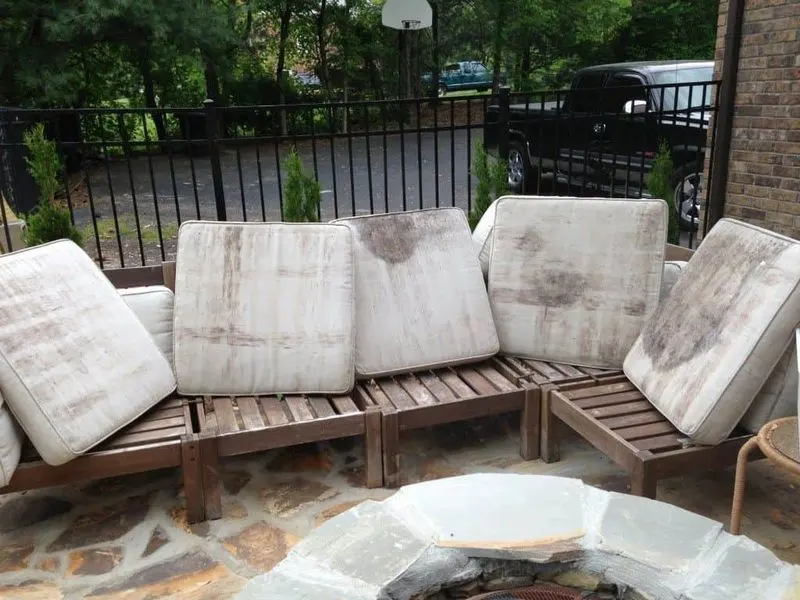
Outdoor furniture can be prone to mildew, especially in humid climates. Vinegar offers an effective preventive measure.
Dilute vinegar with water and wipe down furniture regularly. The acidity inhibits mildew growth, keeping surfaces clean.
This practice extends the life of your garden furniture, ensuring it’s always ready for use. Regular maintenance with vinegar is an easy, eco-friendly solution, protecting your investment and enhancing outdoor living spaces.
Consistent care prevents mildew buildup, maintaining a pleasant and healthy environment for outdoor relaxation.
Cleaning Garden Statues
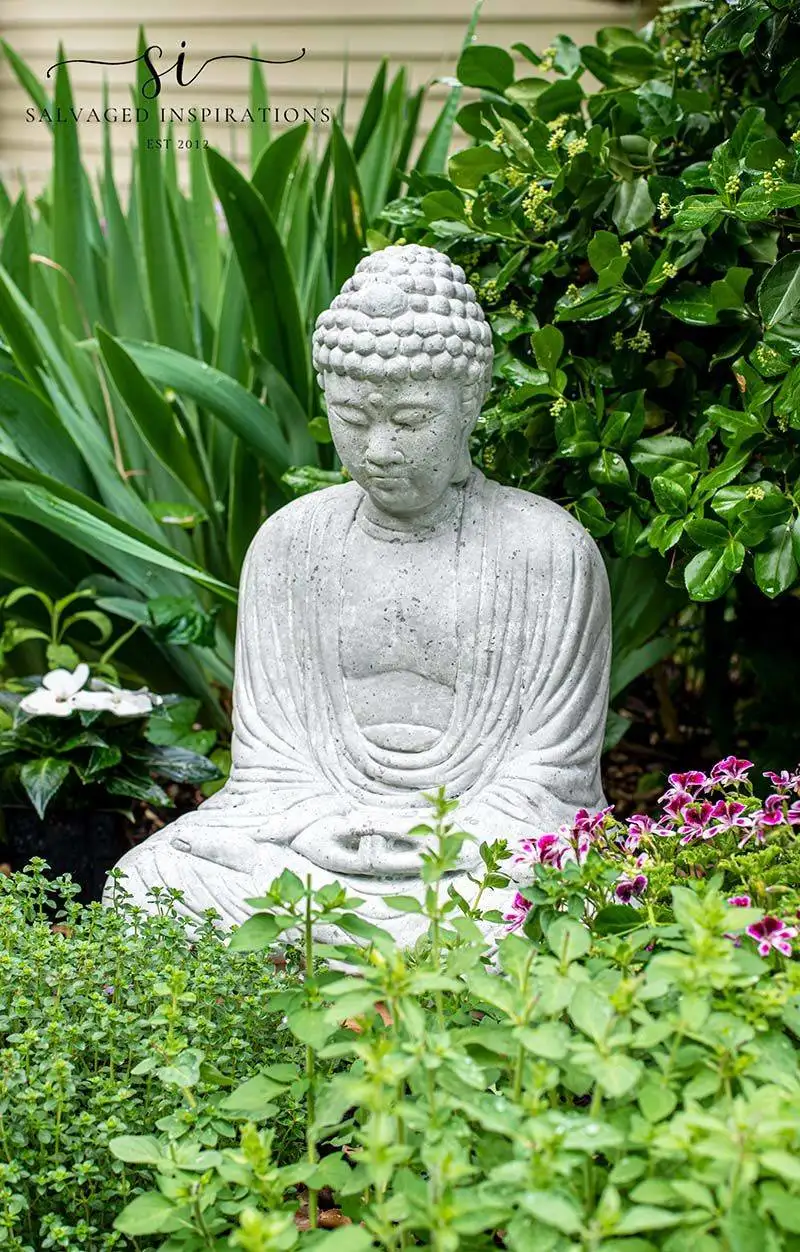
Garden statues add charm, but they can accumulate grime over time. Mixing vinegar with water creates an effective cleaning solution.
Simply spray the mixture on the statue and scrub gently with a brush.
This method not only cleans but also restores the statue’s natural shine. It’s a simple hack that lets your garden decor look its best, enhancing the overall aesthetic.
Regular cleaning with this solution can prevent buildup and prolong the statue’s life.

